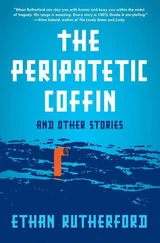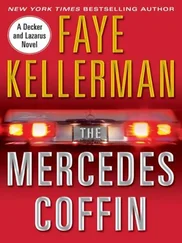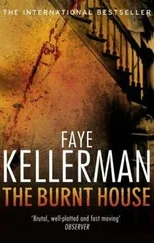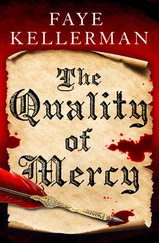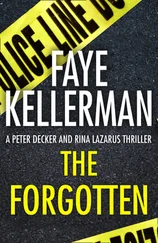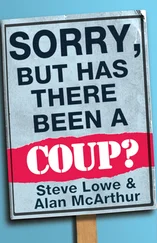“Corporate torture, Rabbi,” Groucho responded solemnly. “It’s better if you don’t know.”
The rabbi sighed. “I’ll survive. Our people have experienced all sorts of adversity.”
“Yeah, you guys have sure had some hard knocks,” Karl added.
“If you got any personal role models, Rabbi,” Groucho said, “you know, people you admire ’cause they’re strong-maybe now’s the time to start thinkin’ about them.”
“There is no shortage of Jewish martyrs,” Feinermann said. “Take, for example, Channah and her ten sons. A bit of a zealot, Channah was, but righteous nonetheless. She instructed her ten sons to die rather than give themselves over to the Hellenic ways.”
“Did they listen to her?” Karl asked.
“Yes, indeed, they did. The youngest was only six, yet he accepted death rather than bow down to the Greek gods and goddesses.”
“That’s terrible,” Groucho said. “A six-year-old kid, what does he know?”
“They were probably more mature in those days,” Karl said. “After all, didn’t most people kick the bucket around thirty?”
“Still, the kid was only six,” Groucho said.
“Surely your corporate torture could not be as terrible as that,” Feinermann piped in.
Karl said, “If thinking of this broad helps you along, Rabbi, then more power to you.”
“Then I shall think about Channah. And I shall also think about the Ten Martyrs our people read about on Yom Kippur. Our holiest rabbis were tortured to death by the Romans because of their beliefs. One was decapitated, one was burned, one was flayed, and one of the most famous of our sages, Rabbi Akiva, had his flesh raked with hot combs.”
“Those Romans were surely uncivilized people!” Groucho exclaimed. “Gladiators, lion pits, and torturing men of the cloth. Even Mr. P. wouldn’t do that.”
“Comforting,” Feinermann said.
“Yeah, Rabbi, that’s the spirit!” Karl cheered on.
Feinermann thought: So maybe this was his chance to show his faith, like the Ten Martyrs. Always the little Jew against someone of might-the Persians, the Romans, the Spanish of the Inquisition, the Cossacks, and, most deadly, the Nazis. Not to mention Tommy Hoolihan, who beat Feinermann up every day for two years as the small boy of ten with the big black kippah walked home from heder . His mother thought that the bruises he’d sustained were from falls. She must have thought he was the clumsiest kid in New York.
Twenty-five hundred years of persecution.
Yet the Jews as a nation refused to die. Could he, like Rabbi Akiva, die with the words Sh’ma Yisroel on his lips and mean them?
Feinermann thought about that as the two masked men led him to his destiny.
Perhaps he could die a true martyr, perhaps not. But if he couldn’t, he wouldn’t worry about it too much. After all, how many Rabbi Akivas were there in a lifetime?
He had expected darkness and filth, chains and nooses hanging from the ceiling. And some red-eyed, emaciated rats ready to eat his kishkas out. Instead Feinermann was brought into a semicircular projection room. The auditorium consisted of a wide-angled screen and a half-dozen rows of plush chairs, maybe seating for fifty in all.
Not so bad for a dungeon, Feinermann thought.
They placed him in the center row and shackled his feet and hands to the chair. He watched fearfully as Karl took out some masking tape. But all Marx did was tape the old man’s eyes open. Not tight enough to prevent him from clearing his eyes of debris, but firmly enough to prevent him from pressing his lids together.
“Scream when you can’t take it anymore.” Karl stood up. “Nothing personal, Rabbi. I’d like to help you, but I can’t.” He moved closer to the old man’s ear and whispered, “I’m into Elvis for a lot of bread.”
“Elvis?” Feinermann said.
Karl swore and hit his face mask, whispering, “That’s Groucho’s real name. Don’t say nothing or we’ll both be in deep water. Let’s just get this over with.”
As Groucho dimmed the lights, Feinermann waited solemnly, wondering why Elvis didn’t hide under an Elvis Presley mask. It would have seemed like a natural disguise.
Soon the old man was sitting in total darkness. All he could hear and feel were the sensations his own body provided-the whooshing of blood coursing through his head, his heartbeat, the quick steps of his nervous breathing.
Then the first outside stimulus. A motor running. The room slowly beginning to brighten as shadowy shapes illuminated the movie screen. Sound… music… bad music. Not only was it sappy but it was old and distorted. It sounded as if it had come from an ancient, irrelevant documentary-the kind they show frequently on PBS.
On-screen was a fuzzy sienna image of a young man digging up potatoes. A voice-over with a reedy mid-Atlantic accent explained that this man was Patrick Benton, Sr., the potato farmer. The shack in the background was Benton ’s house in County Cork. The film went on to explain the hardships of Irish potato farming, including the great famine of the eighteen hundreds.
A little history lesson never hurt anyone, the rabbi thought. Still, he wished he could blink in earnest. Next on the screen was a boat stuffed with Irish immigrants approaching Ellis Island. He wondered if Tommy Hoolihan’s parents were aboard.
Then a cut to a tenement house, not far from where Feinermann grew up. He recognized old buildings that had been razed decades ago. The old clothing, the pushcarts, faces of men and women who still believed in the American Dream. Nostalgia gripped his chest. The film switched to an indoor shot-a frame of a woman with a plump face holding a baby in her arms. She looked like Feinermann’s mother. In fact, she could have been any one of a thousand immigrant mothers.
His eyes were watering, and he knew it wasn’t because he couldn’t blink. The moisture in his orbs represented something deeper.
The baby had been christened Patrick Jr. Feinermann didn’t know Mr. Benton’s forename, but he was pretty certain he was looking at the great philanthropist himself. As the film progressed, it was clear to the old man that what he was watching was Patrick Jr.’s rags-to-riches story. From the son of a potato farmer to the CEO of one of the biggest corporations in the world.
Only in America.
The old man watched with rapt attention.
Philip said to Groucho, “How long has he been in there now?”
“Close to six hours, sir.”
“Incredible.” Philip paced. “Simply incredible. Most ordinary men would have cracked hours ago. Seeing that same story over and over. Are you sure he didn’t puke? Puking is usually the first sign that they’re coming around.”
“No sign of puke anywhere,” Karl said. “It’s really amazing. That thing is so corny, I almost puked. And I only had to sit through it once.”
“Maybe it’s because he hasn’t eaten,” Groucho suggested.
Philip thought about that for a moment. “Did he retch at all?”
“Not even a single gag, ” Karl said.
“I just don’t understand.” Philip pulled out his handkerchief and wiped his face. “If psychological torture isn’t bringing him around, we’ll have to take sterner measures.”
Groucho said, “Surely you’re not suggestin’ physical torture?”
“Our market share in the industry is plummeting.” Philip wrung his hands. “CeeGee’s new formula is wiping us off the map. I’ve got a five-figure monthly mortgage and a Range Rover owned by the bank. I’m gonna crack that old geezer somehow!”
Over the intercom came Feinermann’s voice. “Marxes, can you hear me?”
Читать дальше

